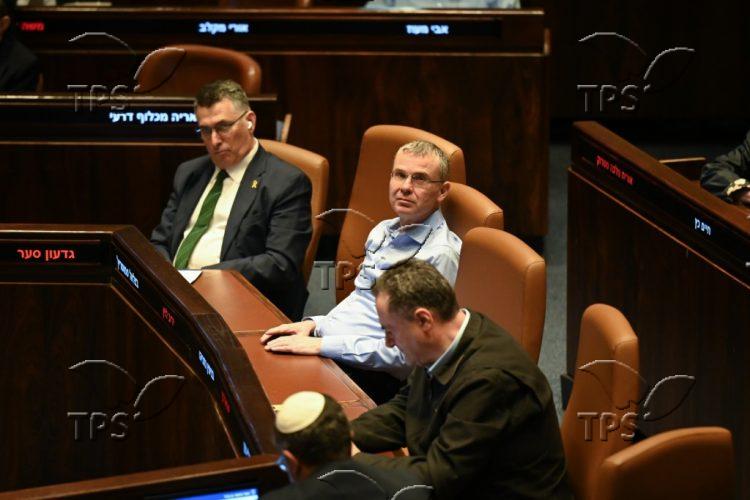Knesset Gives Government Greater Control Over Judicial Appointments
Jerusalem, 27 March, 2025 (TPS-IL) -- The Israeli Knesset passed legislation changing the makeup of a committee responsible for appointing the country’s judges as opposition lawmakers walked out in protest on Thursday morning.
The law passed by a vote of 67-1.
The new law “puts an end to the member-brings-member system used in appointments, stops the conflict of interest that stemmed from the membership of the Bar Association representatives on the committee, and at the same time provides a full response to the concerns raised by opponents of the reform, in particular the government and coalition’s takeover of the judicial election procedures,” said Justice Minister Yariv Levin before the vote.
The sole opposition vote was cast by Yesh Atid MK Mickey Levy who said he voted by mistake.
The legislation, part of the government’s controversial judicial overhaul initiative, revamps the nine-member Judicial Selection Committee chaired by the Minister of Justice. The committee will be made up of one government minister, one coalition MK, one opposition MK, two lawyers — one each appointed by the government and the opposition — and three sitting Supreme Court Justices.
A simple majority would be required to elect judges for any court as long as one government and one opposition member are part of the majority.
The bill also sets stricter criteria for appointing Supreme Court justices, including an age limit of 55 and a requirement that two-thirds of justices be former district judges. It also provides special arrangements in cases of broad coalitions, re-election of committee members in the event of government changes, and more stringent requirements for replacing MKs who switch political affiliation.
The legislation is based on a compromise hammered out between Justice Minister Yariv Levin Foreign Minister Gideon Sa’ar, who previously served as justice minister.
The law goes into effect during next Knesset term, after the next election.
Opposition leaders Yair Lapid, Benny Gantz and Avigdor Lieberman vowed to repeal the law “in the next Knesset.”
They said in a joint statement, “The government has learned nothing from the disaster, it continues to harm national resilience, deepen the divide and ignore its real missions: security, the economy and unity. In the next government, we will ensure that the law to change the committee for selecting judges is repealed, and we will return the selection of judges to a decent and professional committee.”
The government’s judicial overhaul agenda includes giving the Knesset the ability to override certain High Court rulings, changing the way legal advisors are appointed to government ministries, and restricting the ability of judges to apply the legal principle of “reasonableness.”
The initiative was frozen with the formation of a unity government following Hamas’s October 7 attack. But the government has since resumed its efforts.
Supporters of the legal overhaul say they want to end years of judicial overreach while opponents describe the proposals as anti-democratic.







